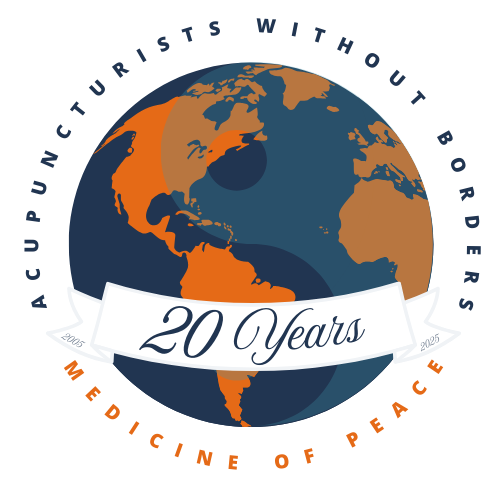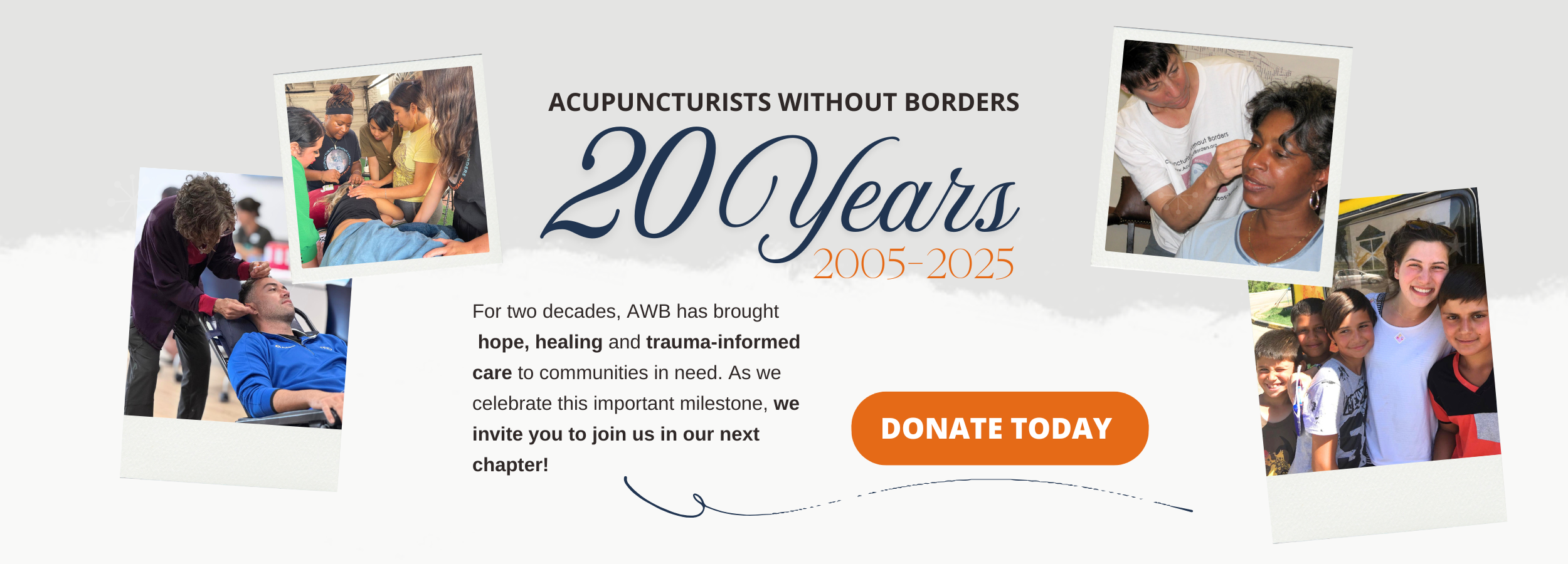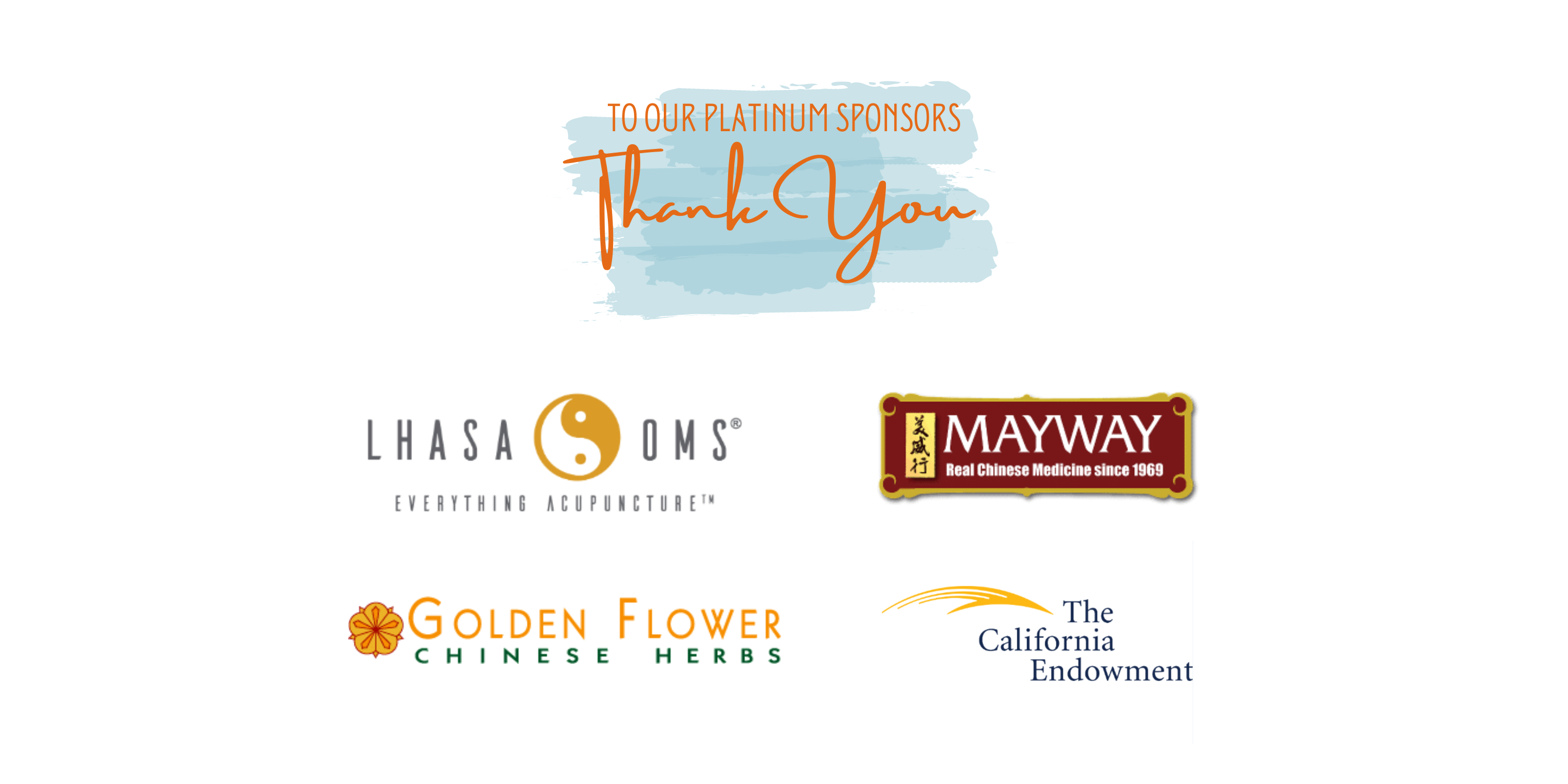
20th Anniversary Booklet
Check our our anniversary booklet outlining our history and featuring stories from AWB leaders, volunteers, and people we serve who have helped shape our mission around the world.
20 Year Anniversary Video
What we do
Acupuncturists Without Borders (AWB) provides integrative, trauma-informed care to people who have experienced physical and emotional trauma, using therapies such as acupuncture, therapeutic massage, and plant-based medicine. To increase the impact of AWB’s trauma-healing work, we train volunteer acupuncturists, physicians, nurses, midwives and other health professionals to create sustainable, collaborative programs in their own communities.

Our Impact
To see the tangible effects of our work throughout the world, please check out our Impact Report for 2025.
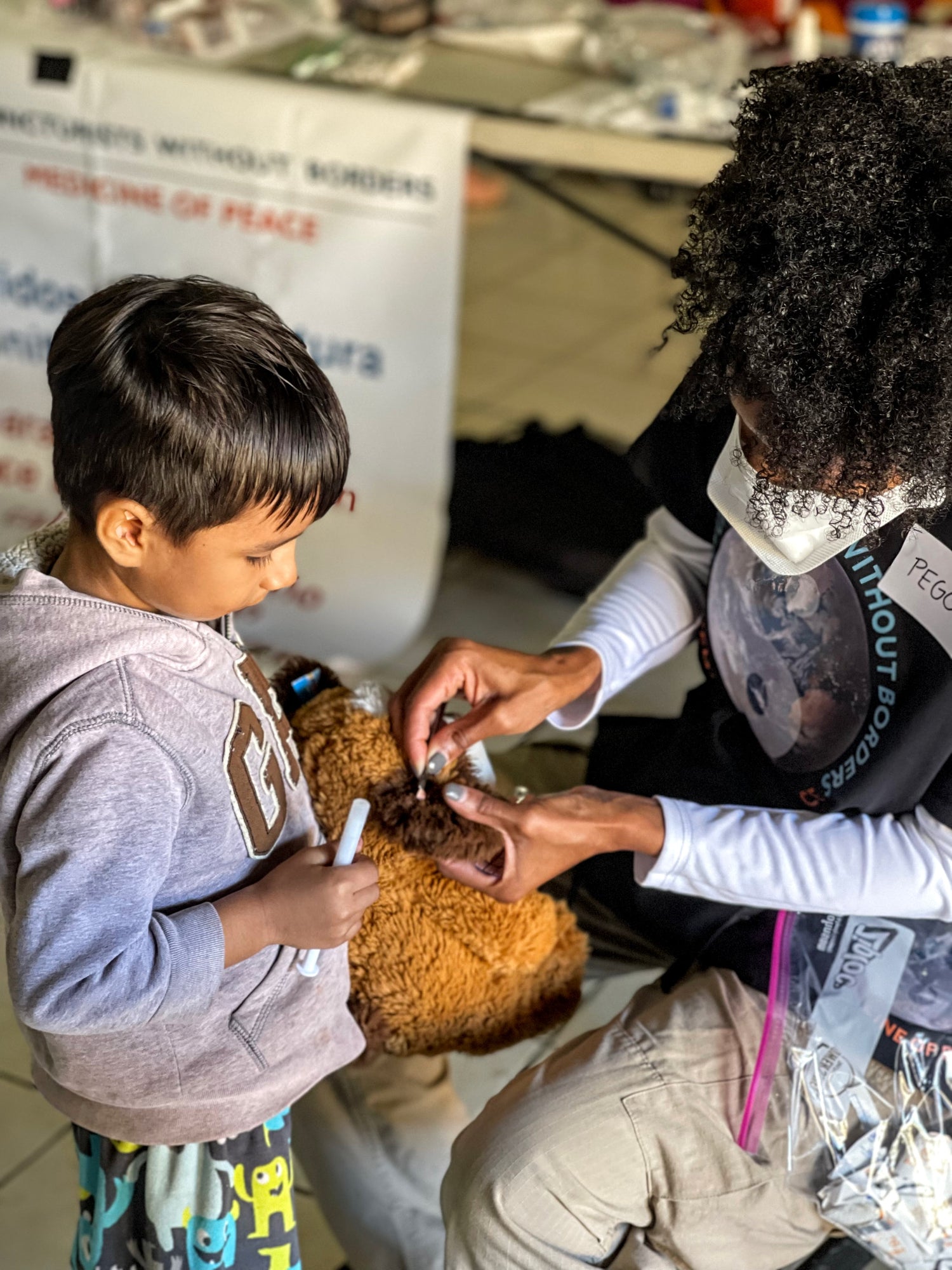
OUR FOCUS
At AWB, when we are asked to help, it is because a traumatic event has occurred in the area - natural disaster or human conflict. We are also called to serve in communities where there are high levels of chronic trauma present. Our work focuses on WHY the trauma occurs, more than where it occurs. Our current priorities include:
- Supporting people in complex humanitarian situations as a result of poverty, disasters and violence, forcing many to seek asylum;
- Supporting people who have been significantly affected by war and human conflict;
- Supporting people who have been adversely affected by natural disasters.
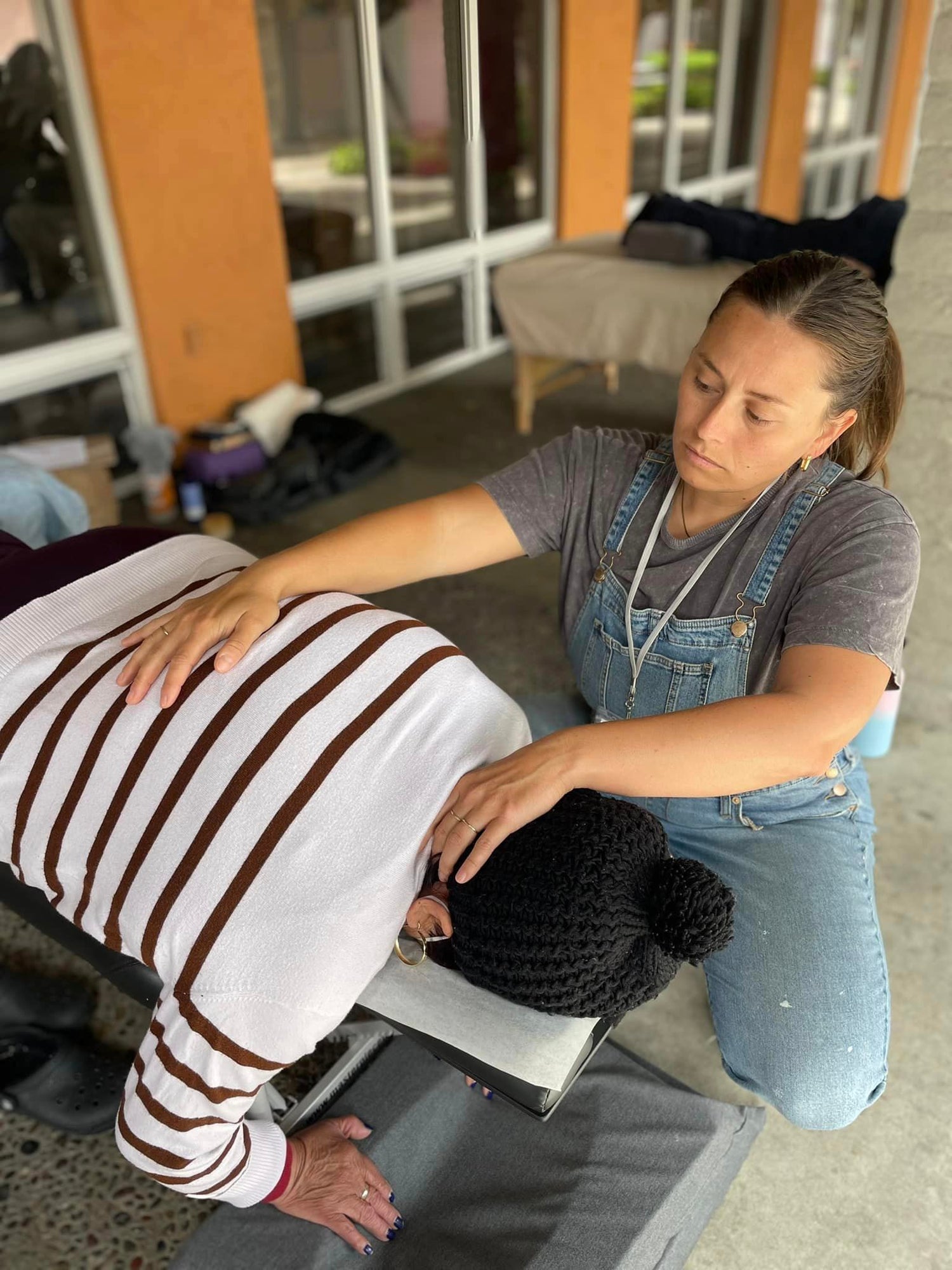
OUR APPROACH
Our approach to service is centered on the following three pillars:
1. Training for healthcare providers in trauma-informed, integrative care & community building tools, so they can sustain or develop trauma-relief projects in their own communities;
2. Material, financial & personnel support for ongoing community-based trauma-relief projects; and
3. Direct trauma-relief services for communities impacted by acute traumatic events.
